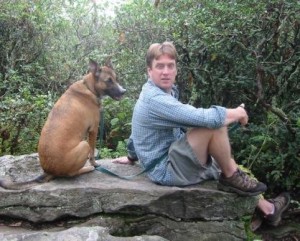Ricardo Holdo
Former Post-Doctoral Associate
Ph.D., Princeton University
Now at the University of Missouri
My research focuses on understanding the determinants of tree abundance, distribution, dynamics, and community composition in savanna ecosystems. Savannas are interesting systems for the study of tree populations because they incorporate a wide range in the amount of woody cover across space and time, and the causes of this variation are still not well understood. Savannas provide an ideal laboratory for teasing apart the relative impact of top-down effects (such as fire and herbivory) versus bottom-up effects (e.g., soil moisture and nutrients) in structuring tree populations. I have been focusing on this problem across trophic levels and at multiple spatial scales through work in southern and east Africa, by combining statistical analyses of observational data (e.g., time series and spatial patterns of tree abundance and tree life history processes), field experiments, and simulation modeling. I am particularly interested in the challenges posed by fitting both statistical and dynamic models to data, and use a combination of likelihood and Bayesian approaches in my work. I am also interested in multi-trophic relations in ecosystems and the feedbacks between fire, plants, herbivores, and soil nutrients in particular, and have conducted work on vegetation feedbacks on the dynamics of fire and the population and movement dynamics of herbivores. Much of my work on animal population and movement dynamics has been conducted collaboratively as a postdoctoral associate in the Holt lab, focusing on the Serengeti ecosystem of East Africa. An additional area of research that I have been involved in with the Serengeti is in the development of socio-ecological models of savanna dynamics. We are using these models to improve our understanding of savanna resilience and dynamics as a result of feedbacks between natural and human-dominated systems.
